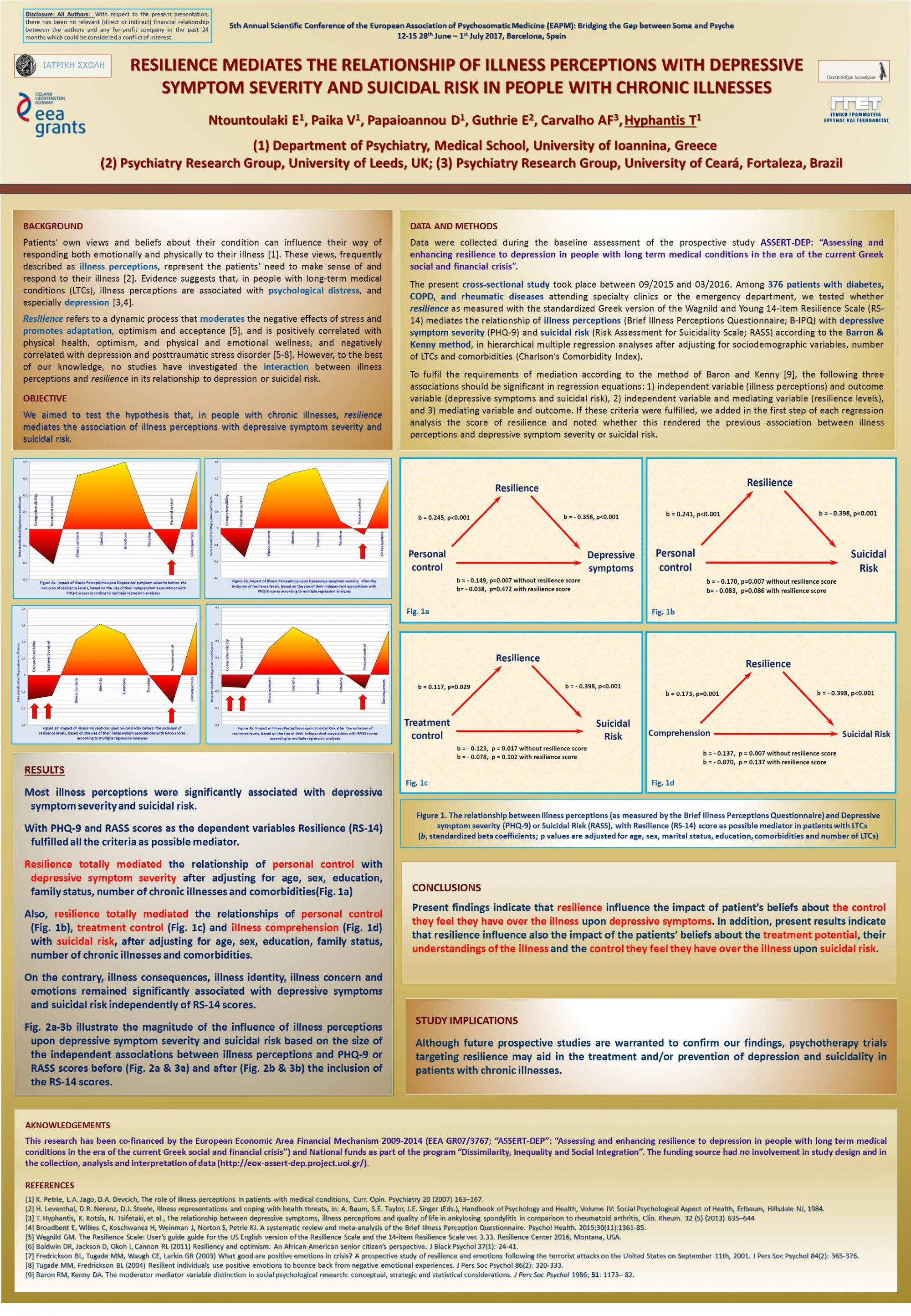Congress Communication #5
Resilience mediates the relationship of illness perceptions with depressive symptom severity and suicidal risk in people with chronic illnesses
Elisavet Ntountoulaki, Vassiliki Paika, Dimitra Papaioannou, Elspeth Guthrie, Andre F. Carvalho, Thomas Hyphantis
5th Annual Scientific Conference of the European Association of Psychosomatic Medicine - EAPM, Barcelona, Spain, June 28th - July 1st, 2017
Resilience mediates the relationship of illness perceptions with depressive symptom severity and suicidal risk in people with chronic illnesses
Elisavet Ntountoulaki (a), Vassiliki Paika (a), Dimitra Papaioannou (a), Elspeth Guthrie (b), Andre F. Carvalho (c), Thomas Hyphantis (a)
(a) Department of Psychiatry, Medical School, University of Ioannina, Greece
(b )Psychiatry Research Group, Medical School, University of Manchester, UK
(c) Department of Clinical Medicine, Faculty of Medicine, University of Ceará, Fortaleza, Brazil
Aims: Given that illness perceptions of people with chronic illnesses are associated with depression, we aimed to investigate whether resilience mediates this relationship.
Methods: Among 366 patients with diabetes, COPD and rheumatic diseases attending the emergency department or specialty clinics during a six-month period (9/2015-3/2016) we tested whether resilience (RS-14) mediates the relationship of illness perceptions (B-IPQ) with depressive symptom severity (PHQ-9) and suicidal risk (RASS) according to the Barron & Kenny method, after adjusting for sociodemographic variables and comorbidities.
Results: Resilience totally mediated the relationship of personal control with depressive symptom severity as well as the relationships of personal control, treatment control and illness comprehension with suicidal risk, after adjusting for age, sex, education, family status, and comorbidities. On the contrary, illness consequences, identity, concern and emotions remained significantly associated with depressive symptoms and suicidal risk independently of RS-14 scores.
Conclusions: Our findings indicate that resilience influence the impact of patient’s beliefs about the treatment potential, their understandings of the illness and the control they feel they have over the illness upon depressive symptoms and suicidal risk. Further studies targeting resilience may aid in the treatment and/or prevention of depression and suicidality in patients with chronic illnesses notwithstanding our findings preclude causal inferences due to this study’s cross-sectional design.
Acknowledgements: This research has been co-financed by the European Economic Area Financial Mechanism 2009-2014 (EEA GR07/3767) and National funds as part of the program “Dissimilarity, Inequality and Social Integration” (Research Program “ASSERT-DEP": “Assessing and enhancing resilience to depression in people with long term medical conditions in the era of the current Greek social and financial crisis”).



